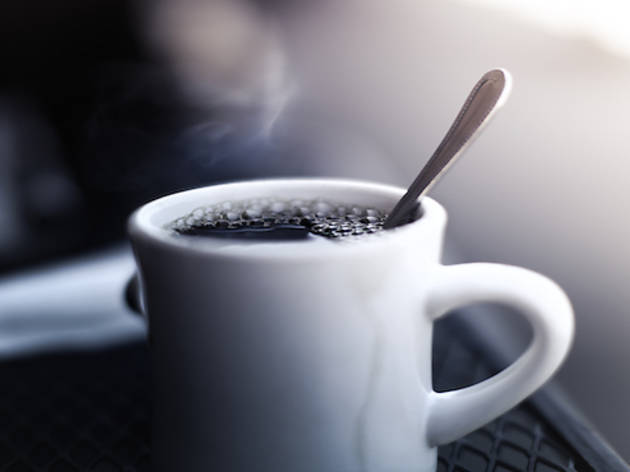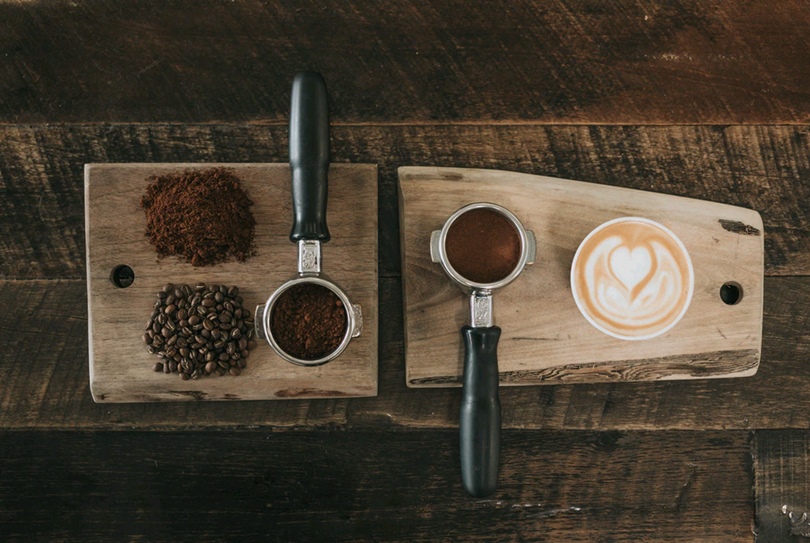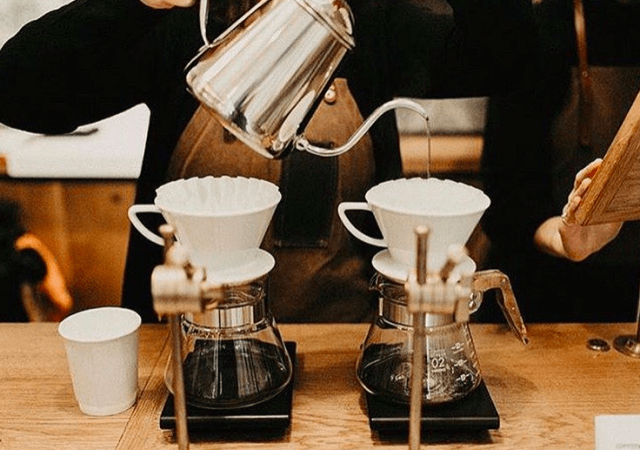After drinking coffee, how long can caffeine be metabolized in the body?
Professional coffee knowledge exchange more coffee bean information please follow the coffee workshop (Wechat official account cafe_style)
At 2 o'clock in the afternoon, you are so sleepy that you can hardly open your eyes. At this point, it seems like a difficult choice whether you want to fight a tired nap or have a cup of coffee to cheer yourself up.
Let's take a brief look at how coffee keeps you awake. Coffee contains a central nervous system stimulant called caffeine. There is a chemical in our brain called adenosine that makes us sleep when we are awake. The longer we stay awake, the more adenosine we have, and caffeine is the enemy of adenylate, which reduces its sleep-inducing effect.
To put it simply, caffeine makes us feel refreshed because it prevents the body from receiving substances that make people fall asleep, so naturally you won't be sleepy.

Caffeine is a bit like a nasty party guy: as soon as the line starts, he arrives early with a bang, gets high for a few hours, and then disappears after the party excitement. For most people, the main stimulating effect of caffeine occurs about 15 to 45 minutes after drinking, because caffeine in the blood reaches its peak level, and you will feel the impact of that energy.
But it takes a long time for caffeine to be completely metabolized. The half-life of caffeine is usually about four to six hours, which means that after four to six hours of intake, about half of the caffeine is still in your body, and you may still feel some of the irritating effects of caffeine. Over time, it will take another four to six hours for the remaining half of the caffeine to be metabolized, and the side effects will gradually disappear.
If you drink a cup of coffee with 100mg of caffeine at 10:00 (about a 250ml cup of coffee), you may also have 25mg of caffeine when you lie down at 10:00 at night. If you drink another 200mg (about two cups of 250ml coffee) at 4pm, about 100mg of caffeine is still in your body at 10:00 in the evening.
Perhaps your current life experience shows that you are the kind of person who can drink coffee at any time but still sleep soundly. If so, congratulations. You don't have to make any changes. You are perfect. If you don't have trouble falling asleep and are energetic during the day, there's nothing wrong with drinking coffee later in the afternoon.
However, sleep is the foundation of health, and if your 4pm latte interferes with sleep, or if you're not sure if caffeine makes you sleepless, the first thing you need to do is stop drinking coffee.
It is generally recommended to drink the last cup of coffee at least 8 to 10 hours before going to bed, which gives two coffee half-lives. In this way, for most people, the deadline for drinking coffee every day is about 12:00 to 2 o'clock. To put it simply, don't drink coffee after lunch. If you want to take advantage of a loophole and drink all the coffee you want in the morning and early afternoon, you're thinking too much. Because it doesn't work. Increasing your caffeine intake only means that your body will later metabolize more caffeine than normal, which offsets the benefits of earlier caffeine intake.
In view of people's different reactions to caffeine, you can also explore their own rules and find out what affects their sleep is the only way. Finding the right balance often requires trial and error, and you may find that drinking coffee at 10:00 or 4pm makes no difference.
Another way to adjust your caffeine intake for better sleep is to reduce your caffeine intake. Try to drink one less drink a day and see if your sleep can improve. Or switch to decaffeinated coffee, although decaffeinated coffee still contains a small amount of caffeine.
END
Important Notice :
前街咖啡 FrontStreet Coffee has moved to new addredd:
FrontStreet Coffee Address: 315,Donghua East Road,GuangZhou
Tel:020 38364473
- Prev

It's not just for taste. 3 reasons why you have to try to make your own coffee.
Professional coffee knowledge exchange more coffee bean information Please follow the coffee workshop (Wechat official account cafe_style) hand-brewing coffee is a ritual, before you start your day's work, on a leisurely late afternoon, when you want to treat yourself well! On a leisurely weekend afternoon, the editor washed Yega Xuefei with a pot of water and poured it on the small glass with a sharing pot.
- Next

Creating a cup of coffee with the right taste _ mastering extraction is tantamount to mastering the heart method of brewing coffee
Professional coffee knowledge exchange more coffee bean information please follow the coffee workshop (Wechat official account cafe_style) "to learn to drink coffee is not only to explore the outside, to distinguish the differences between coffee, but also a journey to know yourself inward. "to create a cup of coffee with the right taste, at the stage of planting and fruit refinement, the quality of the coffee bean itself has been cast, and all steps since then
Related
- Beginners will see the "Coffee pull flower" guide!
- What is the difference between ice blog purified milk and ordinary milk coffee?
- Why is the Philippines the largest producer of crops in Liberia?
- For coffee extraction, should the fine powder be retained?
- How does extracted espresso fill pressed powder? How much strength does it take to press the powder?
- How to make jasmine cold extract coffee? Is the jasmine + latte good?
- Will this little toy really make the coffee taste better? How does Lily Drip affect coffee extraction?
- Will the action of slapping the filter cup also affect coffee extraction?
- What's the difference between powder-to-water ratio and powder-to-liquid ratio?
- What is the Ethiopian local species? What does it have to do with Heirloom native species?

